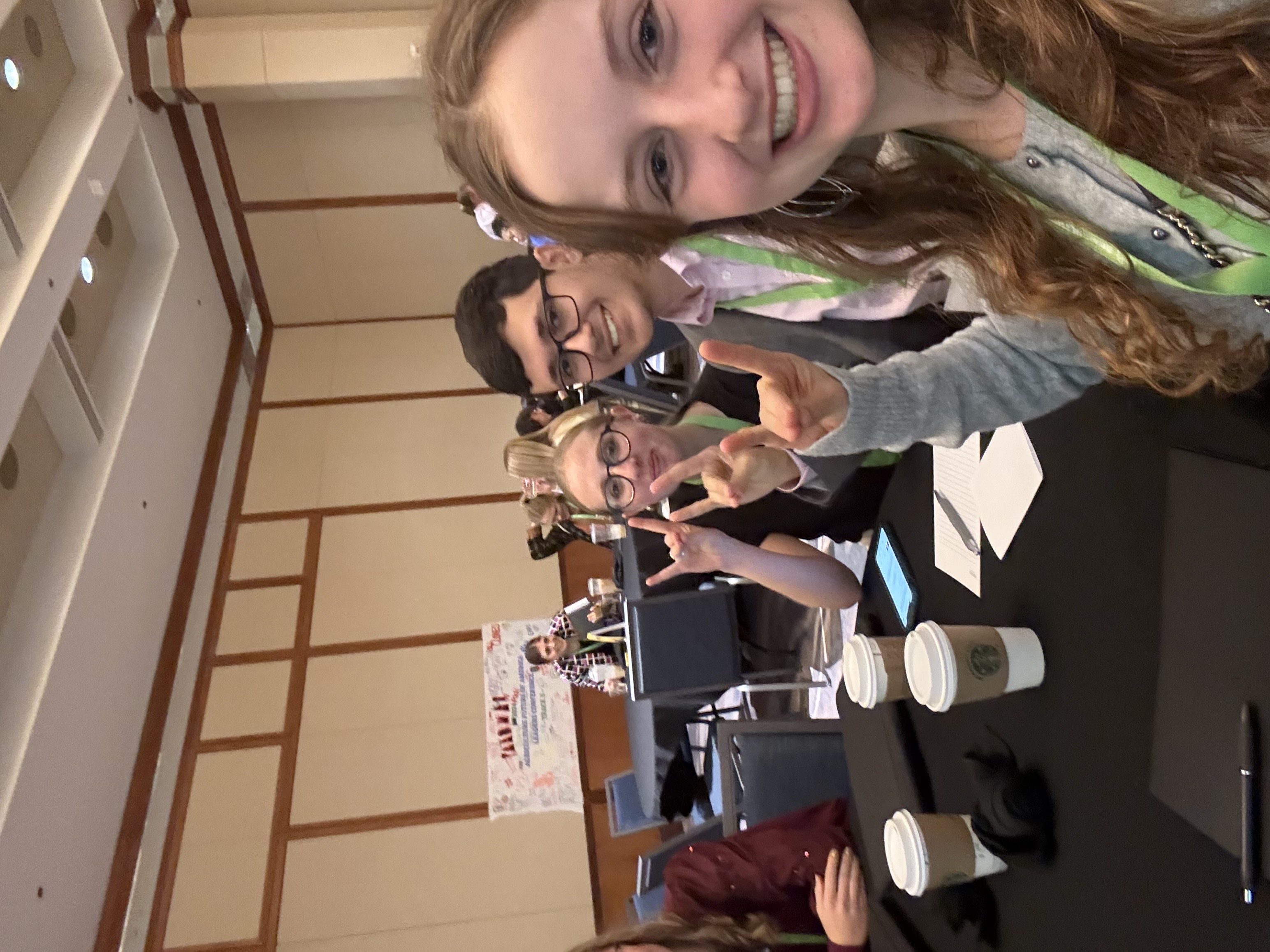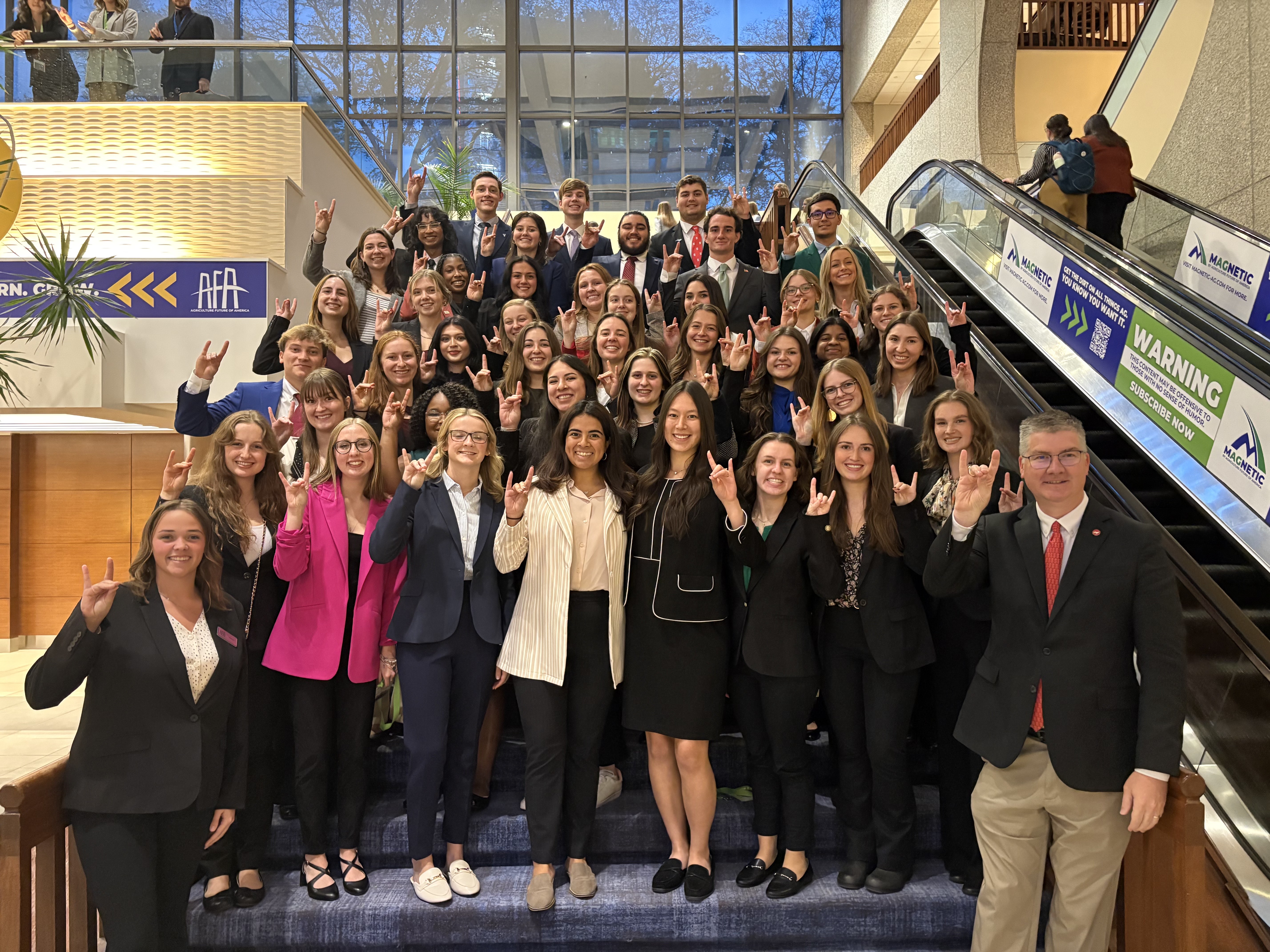In early November, Lance Williams ‘27 attended the Agriculture Future of America (AFA) conference in Kansas City for the second time, where he was appointed as a 2025 student advisory team member. Agriculture Future of America is a nonprofit that empowers young leaders making an impact in food and agriculture.
Lance is majoring in Agricultural Science with a minor in Extension Education, Horticultural Science and Agricultural Business Management. He serves as an ambassador for the Department of Agricultural and Human Sciences and works as an ambassador for the College of Agriculture and Life Sciences (CALS). He also represents CALS students as a senator in Student Government with positions as Chairman of the Committee on Tuition and Fees and Secretary of the Finance Committee. Lance is also a Chancellor’s Aide and a class liaison for his Park cohort.
Lance reflected on his experience at the AFA conference and gave us some insight on what is up next for him.
Since I was seven-years-old, I have always been involved in Cooperative Extension programming through 4-H Youth Development. While I never actually participated in one of the major agricultural program areas, I had the pleasure of serving as the State 4-H Vice President my senior year of high school. This opportunity exposed me to the wide and diverse range of careers within the agricultural industry, and particularly those that relate to agricultural advocacy and education.
Just a few weeks into my first semester here at NC State, I received an email from the College of Agriculture and Life Sciences (CALS) Career Services advertising a workshop to work on our Agriculture Future of America Leaders Conference application. I had never heard of this organization before, but nonetheless, I decided it would be a great opportunity to meet some other students on campus. I went to an AFA workshop and a few weeks later, I learned that I had been accepted to attend the Leaders Conference along with a few dozen other NC State CALS students (including Park Scholar Lexa McDermott ‘26).
The Agriculture Future of America (AFA) Leaders Conference brings together 850 of the most passionate and young minds in agriculture programs across the country to participate in a week full of career development activities. Students are placed in tracks based on their degree progression and focus on relevant topics based on their year in school. Last year, I attended track 1, which focuses on aligning our goals with career opportunities. Many of the workshops were based around building confidence and identity within the agricultural sector. This year, I was placed in track 3 where we focused on career progression and management as well as personal financial planning.


Each year, the AFA Student Advisory Team selects 12 students from across the country to participate in and facilitate many of the activities that are put on by AFA. I was excited to be appointed as a 2025 student advisory team member. In this role, I will build meaningful relationships with my peers that will translate into impactful programming that will help build the next generation of agricultural professionals. We as team members also benefit from an academic scholarship, professional development training and additional networking opportunities.
Beyond facilitating Leaders Conference, the largest role of an AFA advisory team member, a handful of institutes are held across the country to provide career insights for specific disciplines such as precision agriculture, public policy, animal health, plant sciences and sustainability. With these institutes, I will be able to travel and work on tasks such as securing industry and university partnerships, interacting with other AFA students at different schools and when called upon, will provide a student perspective to the AFA Board of Directors.
In North Carolina, we are very lucky to be one of the most agriculturally diverse states both in terms of what we produce and those who produce agricultural commodities. Despite this, many people are not exposed to agriculture in their daily lives, and those in the agricultural industry often get caught up in their own small sector. Through my experiences as an Advisory Team member, I am hoping to develop essential skills which will allow me to better advocate for the agricultural industry. One skill that is particularly important is relationship building. By developing this skill, I will be better able to network for my own future career, as well as foster relations that benefit the agricultural industry as a whole.
AFA has already invested both time and resources into developing me both personally and professionally. I’m excited to continue my work with this program to see where it will lead me.
